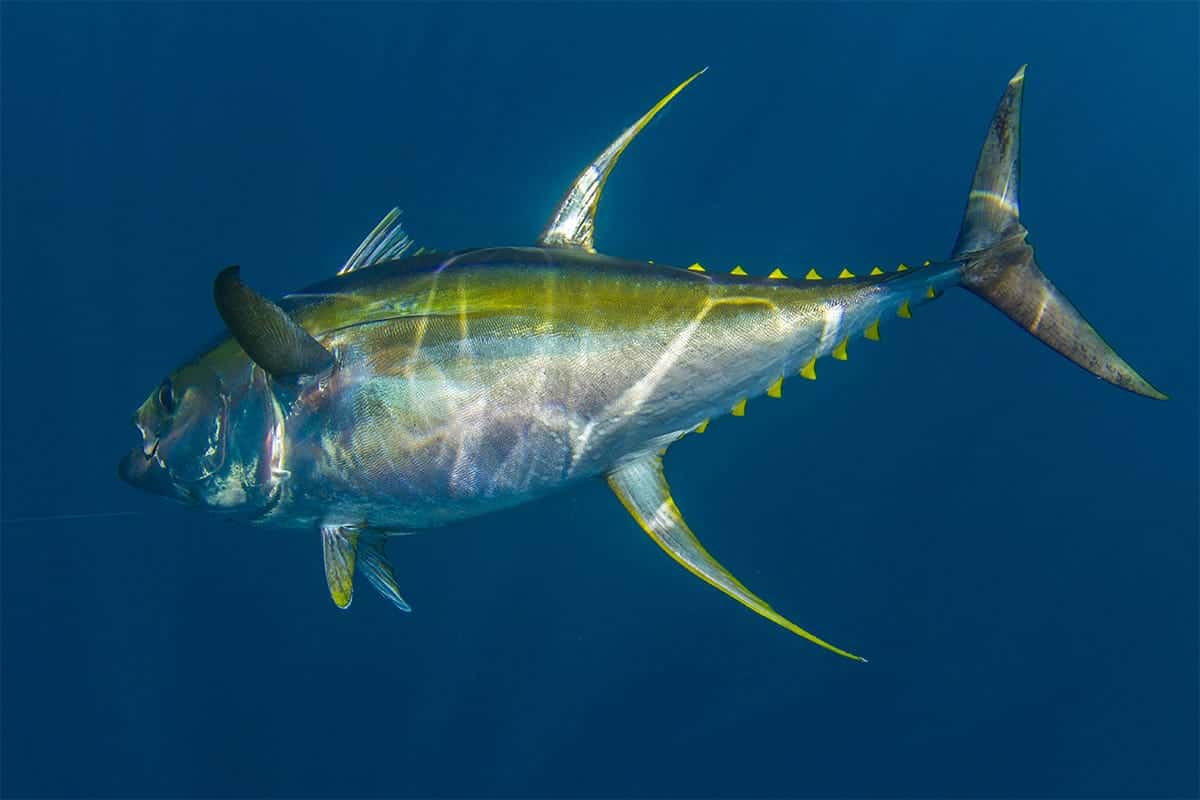After three years of being bounced around between two sets of representatives from congress, the Tuna reform law finally became law. There are two parts of the law which are important to the sport fishing sector.
First is moving the tuna purse seine boats further offshore. The old law permitted them to work just 12 miles from the coast and a Presidential decree in 2014 moved them out to 45 miles. The problem with a Presidential decree is it could be changed at any time whereas a law can only be changed with a new law which is a more difficult process.
The new law requires the tuna seiners to be at least 80 miles from shore. This is great news for both recreational and commercial fishermen. The incidental bycatch of the tuna nets includes many species important to both sectors including marlin, sailfish, dorado and wahoo. It also includes sharks, manta rays, turtles and dolphins as well as the demise of nearly 100 other species to catch one fish to take to market, tuna.
Since the decree in 2014 the coastal zone has made an amazing recovery for sport fishing in all species except sailfish. Catches have increased for commercial longliners but deceased for recreational anglers. With 80 miles of area along the entire Pacific coast free of purse seine boats it opens many possibilities for the future of Costa Rica.
Another part of the new law aimed at helping licensed tourist charter operators is the ability to sell hook and line caught tuna during the slow season when tourism is down. The details and regulations need to be worked out by Incopesca, the governing fishing authority, but licensed boats will be able to bring 15 tuna a day to port to sell.
The recreational limit on tuna is currently 5 per boat with no selling of fish allowed. Recreational anglers will still not be able to legally sell any fish and licensed tourist fishing boats will only be allowed to sell tuna with proper permits from Incopesca.

Is there Hope for Sailfish?
The Costa Rican Sport Fishing Federation (FECOP) sponsored the original tuna decree by supplying data to support the need for change in 2014. For the last three years they have been compiling new data and lobbying congress to support the proposed law.
Costa Rica was once known as the “Capital of the World,” for sailfish but has had to surrender that title to Guatemala due to falling numbers over the years because of harvest by the commercial long line fleet.
Costa Rica has the laxest regulations for sailfish of all countries of the region which all have some degree of protection against commercial use realizing their value as a catch and release species for the tourist sector. In Costa Rica a study in 2018 showed the value of sport fishing to the Costa Rican economy at over $500 million.
The Costa Rican fishing law states the sailfish are a “species of tourist interest,” but a loophole in the regulations allow for it to be sold on the national market. The regulation states all sailfish brought in alive by the commercial sector must be released but if the fish is dead, they may be brought in and sold. Up to 15% of a longliners catch can be sailfish.
As you might have guessed somehow the majority die and are brought to market. Annually between 16,000 and 19,000 sailfish are slaughtered by the commercial fleet. Studies have shown that while sport fishing numbers of sails have decreased between 30 to 70% in the last decade while commercial landings have increased up to 126%.
Incopesca records state that only 3% of the longliners total catch is sailfish although that data has been questioned. The longliners have said themselves many times if the tuna boats, which are all foreign vessels weren’t taking so many of their target species as bycatch, they would have no interest in sailfish which brings in a very low profit on the commercial market.
Well now they have 80 miles of ocean from the coast to fish unmolested by tuna boats. Based on the recovery in the first 45 miles this whole area should be producing well for them in short order. It is time to keep their word and give up of sailfish as a commercial species and once again Costa Rica could easily recapture the title of sailfish “Capital of the World”

About Todd Staley
Todd Staley has run sport fishing operations in Costa Rica for nearly 30 years and works in marine conservation. He currently is Communications Director at FECOP, the Costa Rican Fishing Federation, serves on the International Game Fish Association’s Central America Council, and oversees the fishing operation at Crocodile Bay Resort. Contact him at wetline@hotmail.com






